Population aging is considered the greatest social achievement of the 21st century. The increase in life expectancy, decrease in mortality, and reduction in birth rates can explain the process of human aging in the world.
This process impacts all areas of human life, for example, the economy, health, urban mobility, social issues, and human relationships. The greater possibility of children, young people, and adults living together with more people of advanced age is a great innovation of this century.

Generation timeline
IMAGE LINKED: wikimedia Attribution 4.0 International (CC BY 4.0)
In this sense, the World Health Organization (WHO) considered the next decade as the “Decade of Healthy Aging” (2021-2030).
In this WHO document, better coexistence between people of different generations, such as Older Adults, Boomers, Generation X, Millennials, or Generation Z is a goal to be promoted.
In the literature, the concept of “intergenerational relationships” is understood as bonds that are established between two or more people of different ages and at different stages of development, allowing the union of experiences and contributing to unity within the multiplicity of people involved.
Therefore, it has been agreed among researchers that these relationships must be understood and applied in the logic of lifelong learning, that is, everyone mutually learns and teaches, in different living environments, not only in the family environment.

Family Generation
IMAGE CREDIT: unsplash
We can thus look at intergenerational relationships in two ways. Firstly, in a negative way, when these relationships promote “Ageism”, referring to stereotypes (how we think), prejudice (how we feel), and discrimination (how we act) towards others or ourselves based on age. It can lead to violence and abuse among people.
On the other hand, these relationships can be beneficial, when encouraged and systematized, in order to change negative perceptions of older and younger people, increasing civic participation and active citizenship between younger and older people and promoting a greater understanding between generations.
Thus, providing intergenerational solidarity.
Masonry is a century-old institution that presents itself as progressive, being currently concerned with and following the social phenomena through which the world is going. It is inserted in this context as a relevant social actor in the processes of all areas of human life.
Strongly linked to interpersonal relationships, their scope is to make humankind happy, therefore it involves understanding the other and their social role in established relationships, it is through these interpersonal and consequently intergenerational relationships that Masonry acts forming the social links necessary to contribute to the development of humankind.
Given this context mentioned above, we ask ourselves:
What about Masonry? Does this environment of intergenerational relationships affect our work?
Masonry is a representation of society, so the aging process also entered its scope. The aging of its members is the subject of Masonic works.
According to data presented from the Masonic Demography and Statistics of the Zippia institute (2021) which evaluated Masons in the USA, about 56% of Masons are 40 years old or older. In this document, the age group of 60-65+ years old was not discriminated. Data organized by the Secretariat of the United Grand Lodge of England (2012) showed that 65% of its workers are aged between 50 and 80 years and that the average age of new members is 44 years.
On the other hand, there is a great movement of the stores to increase the number of young members. As in the Grand Lodge of South Australia and the Northern Territory, in which 75% of its 115 new members in the year 2018 were in the 20-30 age group.
Therefore, we can see the reinforcement of the dynamics of intergenerational coexistence in our Masonic works, both due to the increase in the number of older members and the need to expand the entry of younger members.
Thus, retention (evasion) and entry (initiation) are also impacted by this intergenerational condition.
As new generations arrive to replace the current ones, it is vital that intergenerational conflicts are minimized in this coexistence, which signals the relevance of dealing with the topic in the social environment in general and in the Masonic environment, particularly so that understanding can be converted in sharing knowledge, ideas, experiences, and actions that can guarantee the continuation of the Masonic institution in the modern world and an improvement of its performance as a third sector.
Masonic evasion is an adjuvant theme in the international agenda of Masonry.
A study carried out by a Brazilian Mason (Morais, 2017), who evaluated the lodges of the da Grande Loja do Distrito Federal (GLMDF-Brasil, Grand Lodge of the Federal District – Brazil), identified the main causes of Masonic evasion, namely;

26.3% conflicts, 21% professional issues, 10.5% unproductive meetings, 10.5% frustration, 7.9% ideas and opinions, 7.9% family, 5.3% financial issues, and 7.9% other causes.
These problems, according to the author, can be characterized as internal and external to the Lodge.
Internal conflicts represent more than 50% of the causes of dropout (conflicts, bad meetings, frustrations and ideas and opinions).
Our hypothesis is that intergenerational conflicts can promote evasion and make it difficult for new members to enter. In practice, this happens when younger members do not value older Masons, who are often stereotyped as “outdated” and “useless” for the progress of the order.
On the other hand, the older members understand that there is nothing to learn from the younger ones, only things to teach, and they block innovation, which is so necessary for the future of Masonry.
This environment of absence of positive dialogue between generations promotes these internal conflicts.
Intergenerational programs are tools that allow the exchange of resources and learning between older and younger generations for social and individual benefits. Among some solutions, based on the experience in research developed at the Center for Aging Studies at the University of Maturity, of the Federal University of Tocantins– Brazil, we suggest some actions:
a) establishment of a Program of lectures and activities on intergenerationality in Lodges and in paramasonic institutions such as the Demolay Order, the Rainbow Order, and the Order of Job’s Daughters;
b) digital inclusion courses for all ages,
c) carrying out systematic activities in nursing homes and shelters for the elderly,
d) carrying out research on intergenerationality in the Masonry. There is a paucity of this debate in the scientific and Masonic literature.
Finally, far from ending this subject, with this article we start a proposal that reconciles scientific knowledge on the subject with the dynamics of coexistence between members.
This tends to be directly reflected in our in-Lodge work. We want to encourage this debate to encourage a Lodge to be welcoming for all generations.
After all, we ask our readers, could this be a key question for the future of Masonry?
About The Authors

PhD. Luiz Sinésio Silva Neto
Professor at the Federal University of Tocantins and Coordinator of the Human Aging Program – University of Maturity (UMA/UFT). Master Mason of the Grand Masonic Lodge of the State of Tocantins-Brazil.
Links: @netouma (Instagram). @luiz_sinesio (Twitter) and http://sites.uft.edu.br/uma/ (Website).

SGM- GL-Tocantins. Alexandre Modesto Braune
Most Serene Grand Master of the Grand Masonic Lodge of the State of Tocantins and Professor of Basic, Technical, and Technological Education at the Federal Institute of Education, Science, and Technology of Tocantins, holding the Chair of Human Growth and Development of the university’s Physical Education course.
Links: @aprendermodesto (Instagram).
Recent Articles: membership
 A Rose by any other Name may not be the same Explore the profound distinctions between conferred and transmitted Masonic degrees with Bro. Scott Wisdahl. Delve into how presentation quality, personal impact, and setting shape these rituals, and consider the potential for digital adaptations in modern Masonic practices. Join the discussion on enhancing the Masonic journey and preserving its essence. |
 Progression through the Degrees; a Rite or a Privilege? Exploring the layered journey of Freemasonry, Matt DA Fletcher probes the essence of progression—whether it's a mere rite or a privileged path. Delve into a nuanced perspective where every degree is not just a milestone but a fraction of a grander continuum. |
 Quantity vs Quality within the world of Freemasonry Dive into the compelling debate of quantity vs quality within the world of Freemasonry. Discover the transformative focus on attracting members aligned with the institution's values, promising not only growth but quality growth. High-value individuals assure sustainable development with their commitment to serving the brotherhood. |
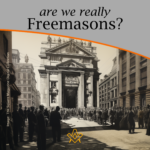 Maybe Freemasonry has opened its doors too wide. Perhaps some have not understood that the survival of Freemasonry in order to achieve its sublime purpose lies not in the number of members it has, but in their quality. Maybe we need less members and more Freemasons. Less men in Freemasonry and more Freemasonry in men. |
 What is ritual and why is it important? P1 Delve into the profound world of Freemasonry rituals and their significance. This insightful piece unravels the underlying importance of rituals, their impact on participants, and the transformative power they hold. Uncover why these centuries-old traditions remain integral to Masonic practice today. |
 Could Freemasonry be helpful for young men? Unravel the Masonic Brotherhood: Could Freemasonry be the antidote to modernity's challenges for young men? Dive in as we explore the Masonic world, its principles, camaraderie, and how its traditional rituals could help forge stronger identities in an increasingly complex world. |
 Discover the remarkable benefits of Lodge Meetings on your well-being. From fostering connections to combating stress, learn how these male-oriented gatherings offer an antidote to anger, hunger, isolation, and exhaustion. Dive into the power of shared experiences, understanding, and camaraderie. Your key to improved mental health awaits inside. |
 Tutorial for a Worshipful Master Unlock the Secrets to Leadership Mastery in our Worshipful Master's Tutorial! Brother Antonio Biella shares step-by-step guidance for Masonic Lodge leaders on honing their roles, duties, and future vision. Discover how to drive growth and engagement in your Lodge, setting ambitious goals and inspiring member participation. |
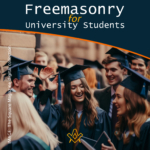 Freemasonry for University Students What are social skillset challenges facing students when they graduate from university ? |
 How the Core Values of Freemasonry; Brotherly Love, Relief and Truth Can Be Applied to Improve Productivity For Entrepreneurs |
 Why I became a Freemason: a personal journey of self-improvement Salik Tariq shares his reasons for becoming a Freemason – a journey of self-improvement, finding a community, and personal growth. |
 Freemasonry: Coming out of the Cloisters This paper examines the fundamental tensions on the lines of religion, gender and political ideology that exist in some jurisdictions of Freemasonry. It is on the first of these, religion, on which he makes an initial and exploratory focus. - by Gerald Reilly |
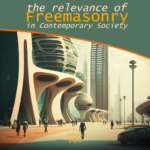 The Relevance of Freemasonry in Contemporary Society The role of Freemasonry in contemporary society is an indispensable one. Despite the challenges and misconceptions it faces, the organization remains steadfast in its humanitarian pursuits and commitment to personal growth and self-betterment. Through its efforts to evolve and adapt to the changing needs of its members and the world, Freemasonry continues to be a vital force in shaping a better future for all. |
 Has Freemasonry managed to revive and thrive after the darkness of the Pandemic? Robert Lomas gives us some (promising) insights. |
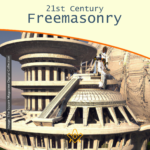 21st Century Freemasonry – a Sign of the Times? A recent article in The Times of London highlighted the dilemma 21st Freemasonry is facing. In this article one Master Mason shares his views of the strengths, and the challenges of modern Masonry. |
 A concept that is both based on our Freemasonic rituals and what we understand as teamwork. This article by Chris Batty examines why teamwork in the lodge is the network that binds us. |
 Lebanese Freemasonry has been both witness to and sometimes participants in turbulent events and forces, which shaped and influenced their world. |
 Is a Masonic Tradition Necessary? Dealing with Masonic tradition is a complex subject that requires careful analysis in order to reach a balanced point on the best etymological definition and the set of discourses and practices, which often end up being presented as such, without, however, presenting bases that support them, often serving only as a discourse that restricts and controls the masses. Fernando Rodrigues de Souza debates this complex subject. |
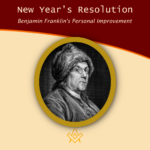 New Year's Resolution with Benjamin Franklin's Personal Improvement Are you ready for a new year's resolution challenge ? To accomplish his life’s goals, at 25 ( around 290 years ago ), Benjamin Franklin developed and committed himself to a personal improvement program that consisted of 13 virtues. You are invited to join me in practicing his daily routine for 2023. |
 The Alberta Masonic Higher Education Bursary Fund is to help the next generation of Albertans, our children and grandchildren, to obtain the education they need to lead successful lives and contribute to the welfare of mankind. As you can see from this little lesson of our history, education is truly a Masonic obligation. |
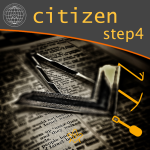 To be a Better Citizen of the World: Step 4 A value proposition for Pure Ancient Masonry as defined in terms of Citizenship; the allegories, symbolism and lessons are a blueprint for all Freemasons to be a better citizen of the world. |
 To be a Better Citizen of the World; Step 3 A value proposition for Pure Ancient Masonry as defined in terms of Citizenship; the allegories, symbolism and lessons are a blueprint for all Freemasons to be a better citizen of the world. |
 In connection with recent article about Freemasonry in the metaverse, we look at how an Egregore applies to Freemasonry in a digital world |
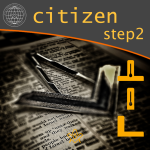 To be a Better Citizen of the World; Step 2 A value proposition for Pure Ancient Masonry as defined in terms of Citizenship; the allegories, symbolism and lessons are a blueprint for all Freemasons to be a better citizen of the world. |
 There are many brotherhoods in the world, and Freemasonry is one of the most significant and successful of them all. This article will be the focus two questions: the importance of brotherhood ? and is there room for improvement in Freemasonry? |
 Intergenerational relations in Masonry: challenges and possibilities Backed with scientific research, Professor Luiz Neto and Professor Alexandre Braune investigate the Intergenerational relations in Freemasonry and explores the challenges and opportunities. |
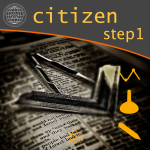 To be a Better Citizen of the World; Step 1 A value proposition for Pure Ancient Masonry as defined in terms of Citizenship; the allegories, symbolism and lessons are a blueprint for all Freemasons to be a better citizen of the world. |
 The Masonic Temple is a platform where both Freemasons and non-Masons, enthusiasts of real art and spiritual growth, connect to the new world of the metaverse. A Freemasonry in the metaverse project, based regular freemasonry principles. |
 Opportunity to fix the Sussex fudge Is there a value proposition for members, that under English Constitution Freemasonry, we have a 4 part offering; Entered Apprentice, Fellowcraft , Master Mason and Companion, conducted in a single craft lodge ? |
 Value Proposition of Freemasonry In addressing declining lodge membership and lack of attendance, we need to assess the value it offers to members. What is value, and what does it mean to you? |
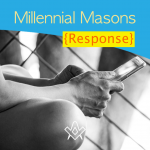 What is a 'Millennial' and what do they want from Freemasonry? You'll be surprised at the answers. |
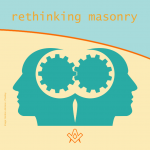 Let us help answer a fundamental question, from a confused newly raised brother asking “What does it all mean and where do I go from here?” |
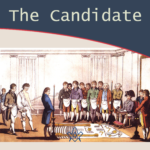 Written in 1930, much of the advice is still relevant today - although some may provoke further thought or debate! |
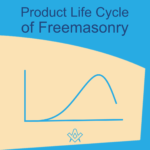 Product Life Cycle of Freemasonry An inconvenient truth about the product life cycle of Freemasonry |
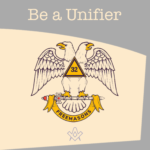 Freemasonry is local. This is where we need to start. We start with our Facebook friends, our neighbours, our colleagues, our lodges… |
 Freemasonry in the time of pandemic The Rule of Six. Localised lockdowns. Second wave? What do we do now?! The answer is simple - engage with members, promote Masonic education and get thinking outside the lodge. |
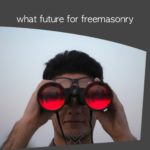 The current functioning of the Masonic movement has some positive aspects and others that are blatantly backward and counterproductive. |
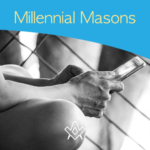 What is a 'Millennial' and what do they want from Freemasonry? You'll be surprised at the answers. |
 How to improve your Lodge Membership Marketing Program. |
 The Anti-Social Impact of Social Media The 'dark side' of social media and its negative effect on our mental health |
 If Freemasonry cannot meet, is this an opportunity to make a change to how we do things? |
 Has your lodge accepted an unknown candidate from the internet? Third in a three-part series looking at the process to accepting candidates via the internet |
 Is the brother of a brother a brother ? Rights to visit - recognition and regularity re-evaluated. |
 The second article in the Unknown Candidate series - Outlining the social media marketing process to attract the unknown candidate to make that first enquiry |
 Ask a random Freemason the purpose of Freemasonry and the likely response will be to “make good men, better”. Research undertaken by James Justin Davis Pennsylvania Academy of Masonic Knowledge. |
 Has your lodge accepted an unknown candidate from the internet? First in a three-part series looking at the process to accepting candidates via the internet |
 Mental Health - Raising its awareness and how we as Freemasons throughout the entire UK can help our fellow brethren and their families when they need it. |
 Share one thought why freemasonry is relevant today - Open question posted on Facebook with a very wide range of responses from Brethren across the globe |
 The Tipping Point of Freemasonry Why do brothers lose interest in Freemasonry and what can we do to get that spark back? At what moment did our own thoughts begin to waver? |
masonic knowledge
to be a better citizen of the world
share the square with two brothers

click image to open email app on mobile device








